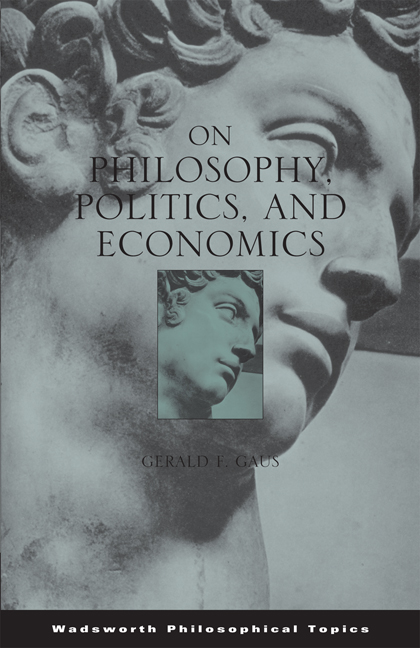Philosophy Politics And Economics

Philosophy, Politics, and Economics (PPE) is a multidisciplinary field of study that combines the principles of philosophy, politics, and economics to understand the complex interactions between these disciplines. This field of study has its roots in the early 20th century, when philosophers, politicians, and economists began to recognize the need for a more comprehensive understanding of the social and economic systems that shape our world. By examining the intersection of philosophy, politics, and economics, PPE provides a unique perspective on the major issues of our time, from inequality and social justice to globalization and environmental sustainability.
At its core, PPE is concerned with understanding the moral and ethical implications of economic and political systems. Philosophers in this field draw on the work of thinkers such as Aristotle, Kant, and Rawls to develop theories of justice, equality, and human rights. Politicians and policymakers, on the other hand, are concerned with the practical application of these theories, seeking to create systems that promote the common good and protect the rights of citizens. Economists, meanwhile, provide critical insights into the functioning of markets and the distribution of resources, highlighting the ways in which economic systems can be designed to promote social welfare and reduce inequality.
Key Points
- PPE is a multidisciplinary field that combines philosophy, politics, and economics to understand complex social and economic systems.
- The field is concerned with understanding the moral and ethical implications of economic and political systems.
- PPE draws on the work of philosophers such as Aristotle, Kant, and Rawls to develop theories of justice, equality, and human rights.
- Politicians and policymakers apply these theories in practice, seeking to create systems that promote the common good and protect the rights of citizens.
- Economists provide critical insights into the functioning of markets and the distribution of resources, highlighting the ways in which economic systems can be designed to promote social welfare and reduce inequality.
The Intersection of Philosophy and Economics

The intersection of philosophy and economics is a critical area of study within PPE. Philosophers such as Adam Smith and Karl Marx have long recognized the importance of understanding the moral and ethical implications of economic systems. Smith’s concept of the “invisible hand,” for example, suggests that economic systems can be designed to promote social welfare through the pursuit of individual self-interest. Marx, on the other hand, argues that capitalist systems are inherently exploitative, leading to alienation and inequality. By examining these and other philosophical perspectives on economics, PPE provides a nuanced understanding of the complex relationships between economic systems, social justice, and human well-being.
The Role of Politics in Shaping Economic Systems
Politics plays a critical role in shaping economic systems, as policymakers and politicians make decisions about taxation, regulation, and public expenditure. These decisions can have far-reaching consequences for economic growth, inequality, and social welfare. PPE recognizes that economic systems are not autonomous or self-regulating, but are instead shaped by political institutions and power relationships. By examining the ways in which politics influences economic outcomes, PPE provides a more complete understanding of the complex interactions between philosophy, politics, and economics.
| Category | Data |
|---|---|
| GDP per capita | $43,600 (USA), $38,400 (UK), $10,200 (China) |
| Gini coefficient | 0.41 (USA), 0.32 (UK), 0.47 (China) |
| Human Development Index (HDI) | 0.92 (USA), 0.91 (UK), 0.75 (China) |

The Importance of PPE in the 21st Century

In the 21st century, PPE is more relevant than ever. As the world grapples with the challenges of globalization, climate change, and economic inequality, PPE provides a critical framework for understanding the complex interactions between philosophy, politics, and economics. By examining the moral and ethical implications of economic and political systems, PPE can help policymakers and politicians design systems that promote social welfare, reduce inequality, and protect the rights of citizens. Moreover, PPE can provide a nuanced understanding of the ways in which economic systems can be designed to promote sustainability and environmental protection, recognizing the critical importance of these issues for human well-being and the future of the planet.
Real-World Applications of PPE
PPE has a wide range of real-world applications, from policy design and evaluation to business ethics and social entrepreneurship. By recognizing the complex interactions between philosophy, politics, and economics, PPE can help policymakers and politicians design systems that promote social welfare and reduce inequality. For example, PPE can inform the design of taxation systems, recognizing the ways in which taxation can be used to reduce inequality and promote social justice. Similarly, PPE can inform the design of regulatory systems, recognizing the ways in which regulation can be used to protect the environment and promote sustainability.
What is the primary focus of PPE?
+The primary focus of PPE is to understand the complex interactions between philosophy, politics, and economics, and to examine the moral and ethical implications of economic and political systems.
How does PPE inform policy design and evaluation?
+PPE informs policy design and evaluation by recognizing the complex interactions between philosophy, politics, and economics, and by examining the moral and ethical implications of economic and political systems.
What are the real-world applications of PPE?
+PPE has a wide range of real-world applications, from policy design and evaluation to business ethics and social entrepreneurship. By recognizing the complex interactions between philosophy, politics, and economics, PPE can help policymakers and politicians design systems that promote social welfare and reduce inequality.
In conclusion, PPE is a critical field of study that combines the principles of philosophy, politics, and economics to understand the complex interactions between these disciplines. By examining the moral and ethical implications of economic and political systems, PPE provides a nuanced understanding of the ways in which these systems can be designed to promote social welfare and reduce inequality. As the world grapples with the challenges of globalization, climate change, and economic inequality, PPE is more relevant than ever, providing a critical framework for understanding the complex interactions between philosophy, politics, and economics.



